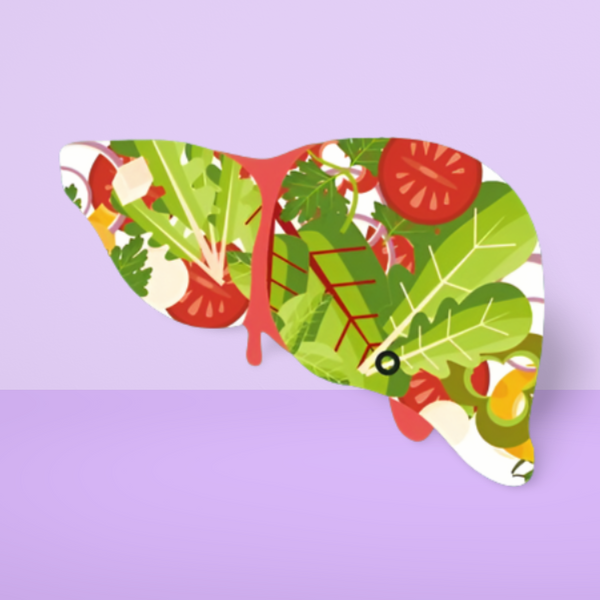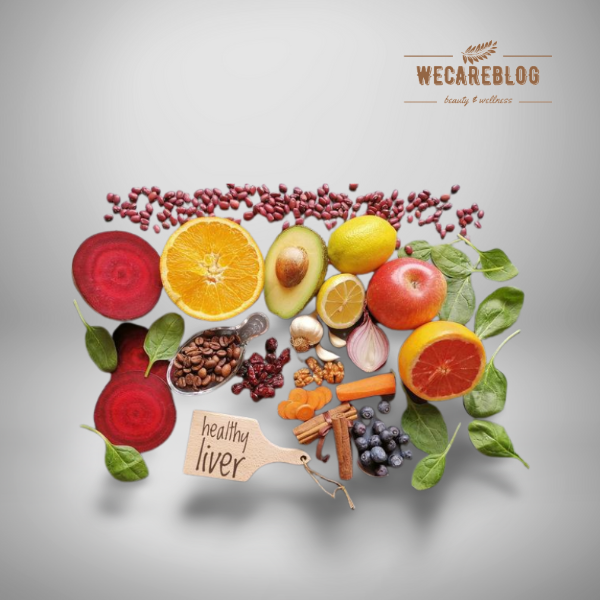Introduction: The Ultimate Guide to a Healthy Liver
The liver, the largest internal organ in the human body, plays a crucial role in maintaining overall health and well-being. It performs a wide range of functions, including filtering toxins from the blood, producing bile for digestion, storing essential nutrients, and metabolizing drugs and alcohol. Given its vital role, it is imperative to take proactive steps to maintain liver health. This article serves as an ultimate guide to help you understand the importance of liver health and provides valuable insights into maintaining a healthy liver.

Foods Good for Liver Health
The Power of a Healthy Diet for Liver Function
A healthy, well-balanced diet is essential for proper liver function. Certain foods have special qualities that benefit liver function. Let's look at some liver-friendly foods you can include in your diet.
1. Leafy Greens: Nature's Liver Cleansers
Spinach, kale, and arugula are high in chlorophyll, a natural chemical that aids in detoxification. These greens are high in antioxidants, vitamins, and minerals, which aid in liver cleansing and overall wellness.
2. Cruciferous Vegetables: Detoxifying Powerhouses
Broccoli, cauliflower, and Brussels sprouts are cruciferous vegetables and excellent choices for liver health. They include chemicals such as glucosinolates, which aid in liver detoxification and protect the liver from injury.
3. Fatty Fish: Omega-3 Rich Superfoods
Omega-3 fatty acids are prevalent in fatty fish such as salmon, mackerel, and sardines. These essential fats help promote liver health by reducing inflammation, preventing fat formation in the liver, and improving liver enzyme levels.
4. Nuts and Seeds: A Nutritional Boost for Your Liver
Nuts and seeds, such as walnuts, flaxseeds, and chia seeds, can provide critical elements such as antioxidants, fiber, and healthy fats. These nutrients aid in the reduction of inflammation and the overall function of the liver.
5. Turmeric: A Spice for Liver Protection
Turmeric, a brilliant yellow spice, includes curcumin, an active chemical. Curcumin contains powerful antioxidant and anti-inflammatory qualities that help protect liver cells and may help prevent liver damage.
6. Garlic: Detoxification Support
Garlic is famous for its pungent flavor, but it also has liver-protective properties. It activates liver enzymes that aid in the removal of toxins, promotes liver detoxification, and may even lower the incidence of liver cancer.
7. Green Tea: Antioxidant-Rich Beverage
Green tea is a popular beverage that includes catechins, which are antioxidants that help the liver operate. Green tea may help minimize fat buildup in the liver and boost overall liver health if consumed on a regular basis.
8. Citrus Fruits: Vitamin C for Liver Repair
Citrus fruits, such as oranges, grapefruits, and lemons, are high in vitamin C, a potent antioxidant that helps the liver produce detoxifying enzymes. Consuming citrus fruits can aid in the repair of damaged liver cells and the improvement of liver function.
9. Beetroot: Natural Liver Detoxifier
Beetroot is a colorful root vegetable high in antioxidants and chemicals that support liver function and detoxification. Its natural colors promote bile flow and liver function.
Here is a short summary…
| Foods | Benefits for Liver Health |
|---|---|
| Leafy Greens | Rich in antioxidants; support liver detoxification |
| Cruciferous Vegetables | Aid liver detoxification; protect against liver damage |
| Fatty Fish | Provide omega-3 fatty acids; reduce inflammation |
| Nuts and Seeds | Rich in antioxidants and healthy fats; support liver function |
| Turmeric | Contains curcumin, which protects liver cells |
| Garlic | Activates liver enzymes for detoxification |
| Green Tea | Rich in antioxidants; reduces fat accumulation in the liver |
| Citrus Fruits | High in vitamin C; promote liver repair |
| Beetroot | Support liver detoxification and improve liver function |
Foods to Avoid or Limit for Liver Health
While certain foods promote liver health, it is equally important to be mindful of foods that can harm the liver. Here are some foods you should avoid or limit for optimal liver health.
1. Excessive Alcohol: The Liver's Worst Enemy
One of the primary causes of liver disease is excessive alcohol consumption. Because alcohol is harmful to liver cells, it can cause fatty liver disease, alcoholic hepatitis, and cirrhosis. To protect your liver, it is critical to limit or avoid alcohol consumption.
2. Processed Foods: Harmful Additives and Preservatives
Processed foods are frequently high in harmful chemicals, preservatives, and trans fats. These drugs can overload the liver and cause liver damage over time. To maintain liver health, choose fresh, healthy meals wherever feasible.
3. High-Sugar Foods: The Impact on Liver Function
Excessive consumption of sugary foods and beverages can lead to fatty liver disease, insulin resistance, and inflammation. Limiting your intake of sugary foods, such as sodas, candies, and processed snacks, is critical for liver function.
4. Trans Fats: The Link to Fatty Liver Disease
Trans fats are synthetic fats found in many processed and fried meals. They should be avoided because they raise the chance of developing non-alcoholic fatty liver disease (NAFLD). Read food labels and seek trans-fat-free items.
You might also like: Prostate health importance & managing the risks
Healthy Liver Diet
The Mediterranean Diet: A Liver-Friendly Eating Plan
One dietary approach that is widely recognized for its health benefits, including liver health, is the Mediterranean diet. This eating plan emphasizes whole, unprocessed foods and includes the following liver-friendly components:
Fresh Fruits and Vegetables: A Rainbow of Nutrients
The Mediterranean diet encourages the consumption of a variety of colorful fruits and vegetables. These plant-based foods provide essential vitamins, minerals, antioxidants, and fiber that support liver health and overall well-being.
Whole Grains: Complex Carbohydrates for Sustained Energy
Whole grains like quinoa, brown rice, and whole wheat bread are excellent sources of complex carbohydrates. They provide sustained energy, fiber, and essential nutrients, which are important for liver health.
Lean Proteins: Building Blocks for Liver Repair
The Mediterranean diet favors lean sources of protein such as fish, poultry, legumes, and tofu. These proteins provide essential amino acids needed for liver cell repair and regeneration.
Healthy Fats: A Balance of Omega-3 and Monounsaturated Fats
Olive oil, a staple of the Mediterranean diet, is rich in monounsaturated fats that promote healthy cholesterol levels and reduce inflammation. Nuts, seeds, and fatty fish are also good sources of omega-3 fatty acids, which support liver health.
Limited Red Meat Consumption: Opting for Leaner Alternatives
The Mediterranean diet suggests limiting red meat consumption and choosing leaner alternatives like poultry and fish. High intake of red meat has been linked to an increased risk of liver diseases, so moderation is key.
Moderate Dairy Intake: Choosing Low-Fat Options
Dairy products can be included in moderation in a liver-friendly diet. Opt for low-fat or skim versions of milk, yogurt, and cheese to reduce the intake of saturated fats, which can negatively impact liver health.
Hydration: The Importance of Staying Well-Hydrated
Proper hydration is essential for liver health. Drinking an adequate amount of water helps flush out toxins and waste products, keeping the liver functioning optimally. Aim to drink at least eight glasses of water per day.
Conclusion
Maintaining a healthy liver is critical for overall well-being. You may support good liver function by adding liver-friendly foods, following a balanced liver diet, and ensuring enough vitamin consumption. It is also critical to prevent or limit alcohol consumption, processed foods, high-sugar foods, and trans fats, which can affect the liver. Along with a good diet, maintaining an active lifestyle, staying hydrated, and getting medical guidance when necessary are all important aspects in preserving liver health. Prioritize the health of your liver, and it will continue to support your overall health and vigor for years to come.

